The Tsinghua PBCSF Global Finance Forum 2025 was grandly held in Shenzhen on May 17-18, 2025. On the morning of May 18, Session IX titled "AI and the Future of Digital Finance: Implications for Global Financial Institutions " was successfully conducted. This session comprised two segments: First, XIAO Gang, former Chairman of the China Securities Regulatory Commission(CSRC), delivered a keynote speech titled “Quarterly Analysis of Digital Finance and the Digital Economy”, with a panel discussion followed subsequently.
The panelists included ZHANG Jianhua, Director of the Financial Development and Regulatory Technology Research Center at Tsinghua University PBC School of Finance; MO Wangui, Deputy Director General of Research Institute of the People’s Bank of China (PBOC) ; Joshua LI, Dean of the Ant Group Research Institute; ZHANG Peng, CEO of Beijing Zhipu AI Technologies Co., Ltd. The session was moderated throughout by WANG Zhengwei, Associate Dean and Associate Professor of Tsinghua University's PBC School of Finance.
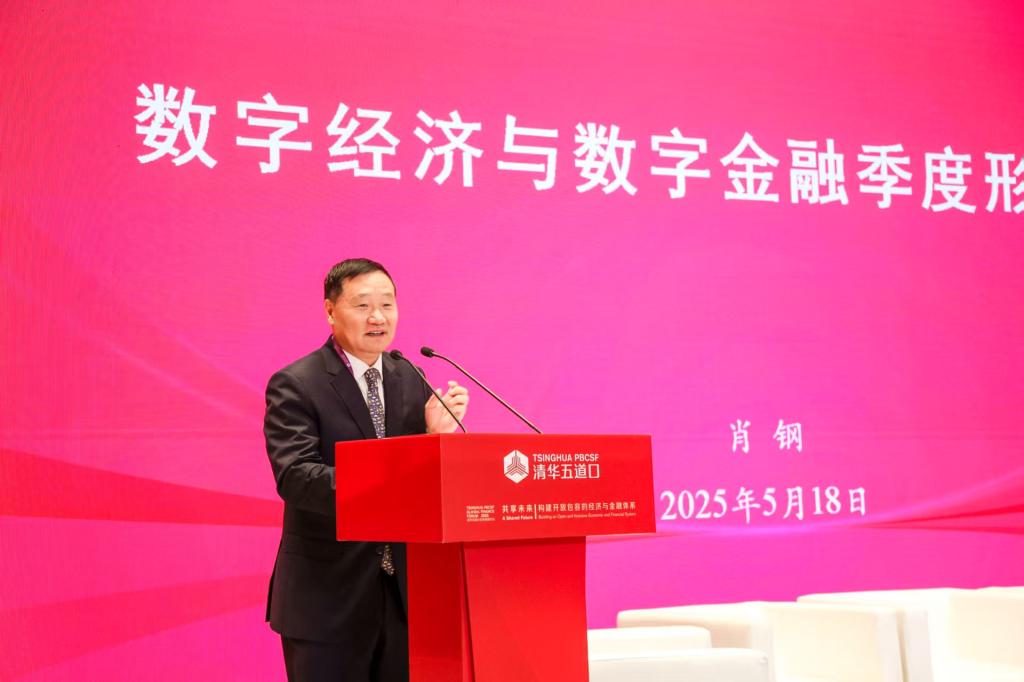
Photo: XIAO Gang, Former Chairman, China Securities Regulatory Commission
During the keynote speech, Xiao Gang pointed out that in the first quarter of 2025, China's digital economy continued to maintain strong growth momentum. The growth of core industries in the digital economy exceeded 10%, significantly outpacing the GDP growth rate over the same period. Both the digital manufacturing and digital service sectors demonstrated remarkable performance, with digital investment experiencing rapid growth and digital consumption showing steady improvement.
Regionally, the eastern region continued to lead in digital economy development. The digital finance sector also exhibited a favorable development trend. In particular, the emergence of DeepSeek has achieved AI democratization, enabling numerous small and medium-sized financial institutions to gain the capability to apply AI large models by accessing platforms like DeepSeek.
Financial institutions have also placed greater emphasis on the return on investment (ROI) in their technological inputs, with capital investment showing a tendency towards precision and efficiency. The construction of the financial data market has also been continuously deepened.
Looking ahead, Xiao Gang suggested improving the industrial ecosystem of the digital economy, promoting the deep integration of the digital economy with the real economy, and implementing the "AI+" strategy. He also suggested accelerating the establishment of a closed-loop governance for generative AI applications in finance, strictly enforcing the AI algorithm filing system, and strengthening the risk management against AI technology misuse; Additionally, he advocated for the construction of a high-quality financial data market, exploring the theoretical foundations and practical paths for issues such as data element ownership and pricing, establishing a trusted data space within the financial industry, and breaking down data silos.

Photo: ZHANG Jianhua, Director of Research Center for Financial Development and Regtech, Tsinghua PBCSF
During the panel discussion, Zhang Jianhua shared insights on how the financial industry can identify key entry points for "AI+”. He emphasized that under the new "AI+" paradigm, financial institutions should explore how to better leverage AI technologies by aligning with their core functions, particularly in enhancing value across the entire customer service lifecycle to better match customer needs.
Meanwhile, when utilizing AI, financial institutions need to understand the capabilities, limitations, and risks of the technology. They should combine this understanding with their own capabilities and needs to select appropriate technological investments. Large institutions can make substantial investments, while small and medium-sized institutions can leverage general large models to lower the barriers to entry. However, they also need to develop their own specialized vertical models.
Additionally, it is crucial to prioritize the protection of financial consumers' rights and interests in the AI era, balancing efficiency with fairness, and security with rights. The conditions for protecting consumers should be incorporated into the objective functions and comprehensive process controls of financial institutions.
Finally, Zhang Jianhua pointed out that AI is poised for explosive growth in the financial sector. In the future, the financial industry will transition from digital finance to smart finance, embarking on a more intelligent development path.
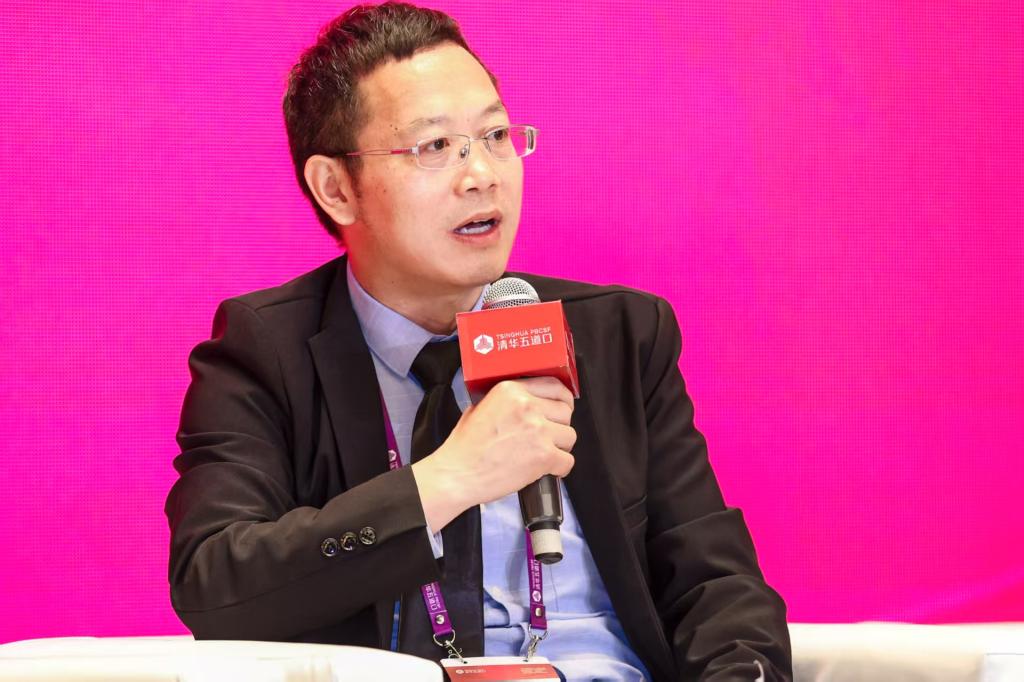
Photo: MO Wangui, Deputy Director General, Research Institute of the People’s Bank of China
Mo Wangui shared insights on establishing a sound financial regulatory mechanism and governance system compatible with new-generation AI technologies. He noted that AI applications introduce novel risks such as model hallucinations, algorithmic black boxes, and algorithmic discrimination, while potentially amplifying traditional risks like procyclicality and overreliance on large tech companies.
To address these challenges, he proposed building a closed-loop governance framework covering all stakeholders: financial institutions should exercise greater caution when promoting the application of AI technologies. They should focus on the adaptability of model technologies to business scenarios, avoid excessive reliance on large tech companies, and prioritize building their own personalized model systems that are integrated into their internal overall risk control and compliance mechanisms.
Emphasis should be placed on human-machine collaboration and business process reengineering to ensure that effective manual intervention mechanisms are established at key nodes of core business operations. Regulatory authorities should adhere to the principles of inclusiveness and prudence, as well as the concept of "technology neutrality”. They should deepen the application of regulatory tools for financial technology innovation, foster a favorable environment for innovation, insist on graded and categorized risk management, leverage the guiding role of standards and norms, strengthen regulatory technological capabilities and the supervision of tech companies, and enhance financial consumer education.
Industry self-regulatory organizations need to formulate industry standards, propose governance initiatives, and establish self-regulatory conventions. Tech companies should strengthen their sense of responsibility, strictly control ethical risks, and ensure that their products and technologies are safe, reliable, and risk-controllable. There is also a need to vigorously cultivate compound AI-finance professionals.
At the macro-prudential policy level, attention should be paid to the impact of AI on systemically important financial institutions. Strengthened supervision of AI-related financial infrastructure is required, along with the improvement of cross-market and cross-institutional risk monitoring and coordinated disposal mechanisms. Leveraging AI technology to enhance the monitoring and early warning capabilities of systemic financial risks and prevent market resonance risks is also essential.
Finally, Mo Wangui emphasized that AI-driven digital finance will strongly promote the coordinated development of the "Five Key Pillars" for building a financially robust country, but must prioritize security and fairness as fundamental prerequisites.

Photo: Joshua LI, Dean of Research Institute of Ant Group
Joshua LI shared his reflections on how AI large models can empower inclusive finance. He argued that with the continuous advancement of AI technology, the collaborative application of large models and small models will emerge as a new paradigm for AI applications in finance. Large models possess numerous advantages that can advance digital inclusive finance, enabling efficient access to financial services, precise empowerment and personalized offerings.
Meanwhile, to promote AI-enabled inclusive finance, institutional coordination is essential. This involves exploring application tiering and regulatory frameworks within the financial sector, building a high-quality cooperative ecosystem for instructional data, driving the construction of shareable infrastructure, and refining the technical standards for industry-wide large models.
Finally, Joshua LI pointed out that AI large models will further propel the financial industry to new heights and enhance the international competitiveness of financial institutions. It is crucial to learn from past lessons, establish application tiering in parallel, and guard against systemic and cross-sectoral risks.
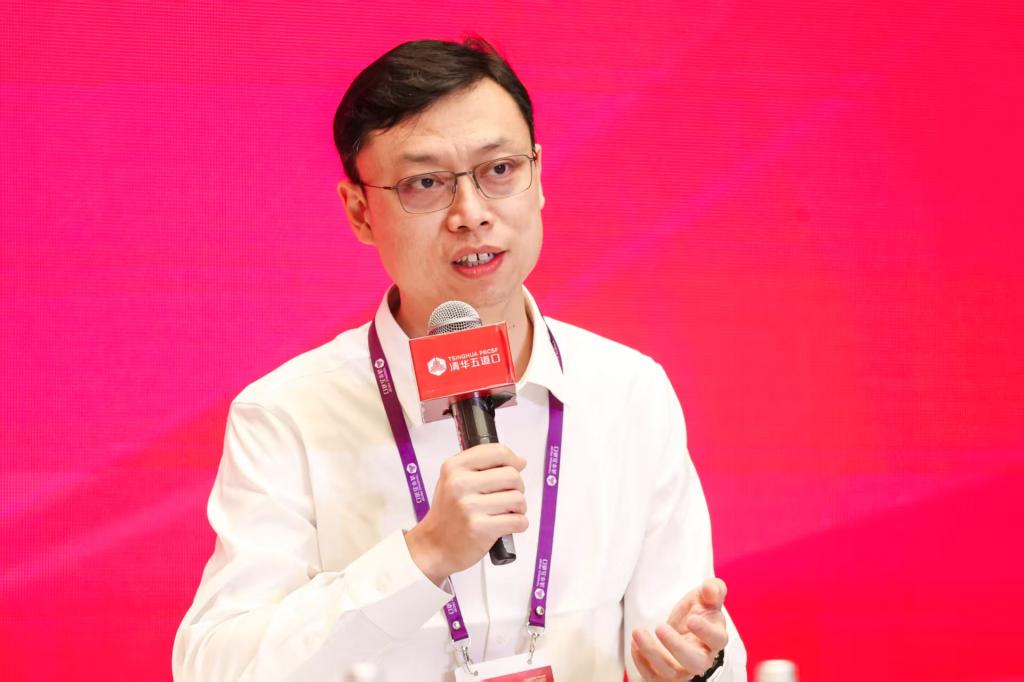
Photo: ZHANG Peng, CEO of Zhipu AI
Zhang Peng shared his insights on how AI is reshaping the financial value chain. He posited that the essence of large models lies in their ability to learn, compress, and represent information about the world, while the essence of financial services is the optimal allocation of social resources. AI is not merely a tool but an indispensable entity within the financial system that will transform the mindset and service paradigms of financial services, shifting the focus from product-centric to service-centric approaches.
In areas such as investment research, risk control, and customer interaction, AI has already demonstrated its superior efficiency compared to human capabilities, and it will enable highly personalized "one-to-one" services in the future. Meanwhile, the practical implementation of AI technology requires a combination of capabilities in technology, data, management, and organizational coordination, with regulatory bodies also needing to proactively embrace the technology.
Finally, Zhang Peng pointed out that digital finance should ideally integrate into daily life as seamlessly as "water and air",built upon the foundations of technology, data, and regulation, enabling people to enjoy better financial services.
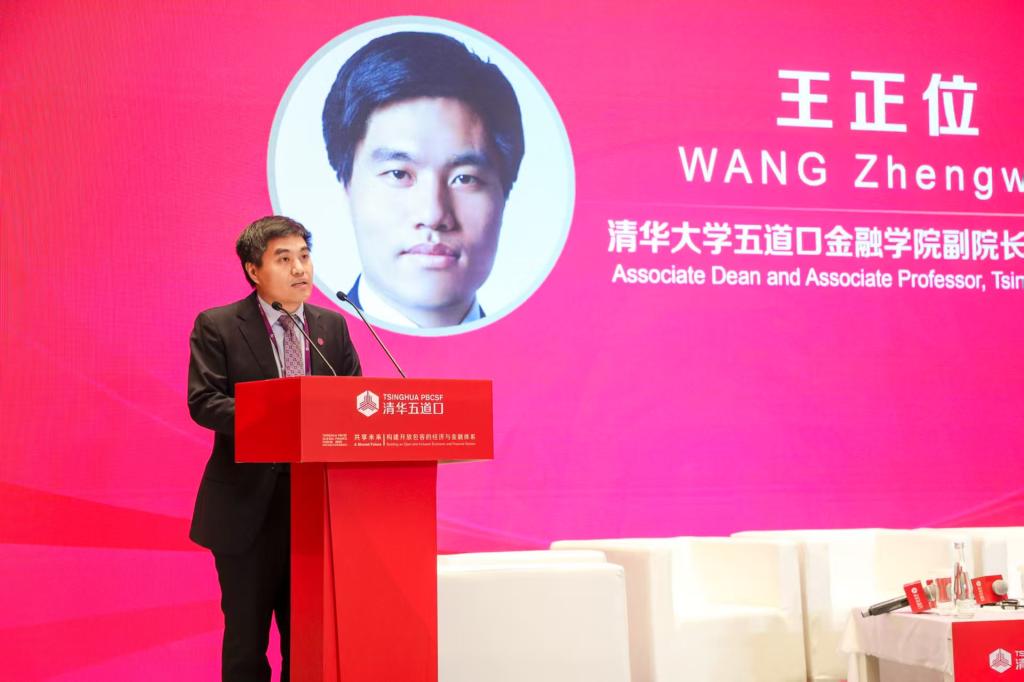
Photo: WANG Zhengwei moderating the session.
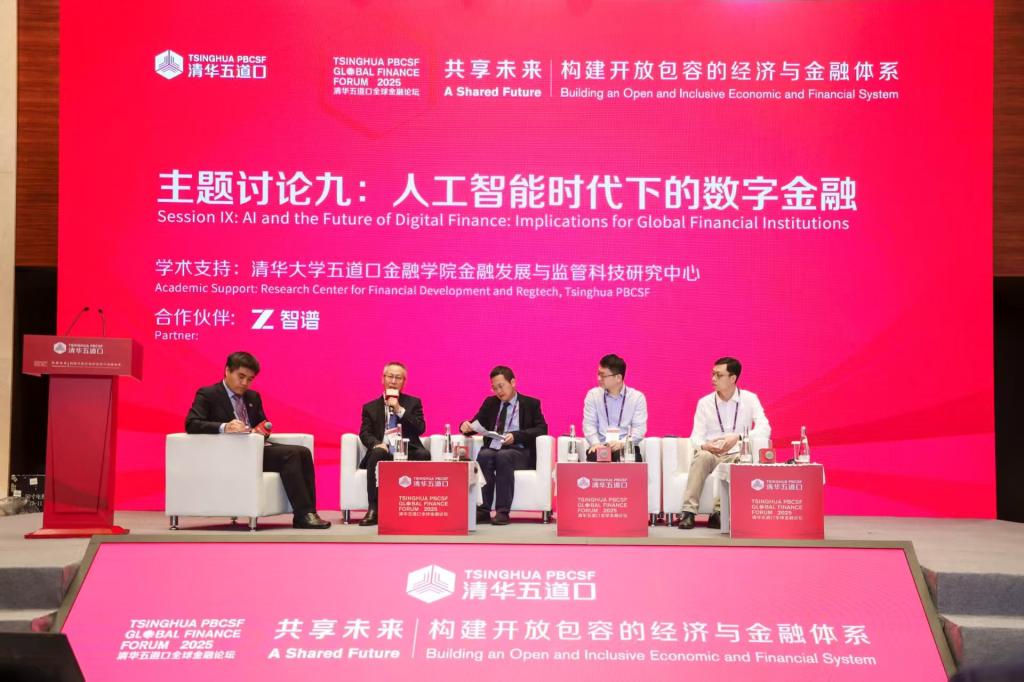
Photo:Panel discussion
Source丨Research Center for Financial Development and Regtech , Forum Working Group
Text丨WANG Zhen
Reviewed丨ZHANG Jianhua